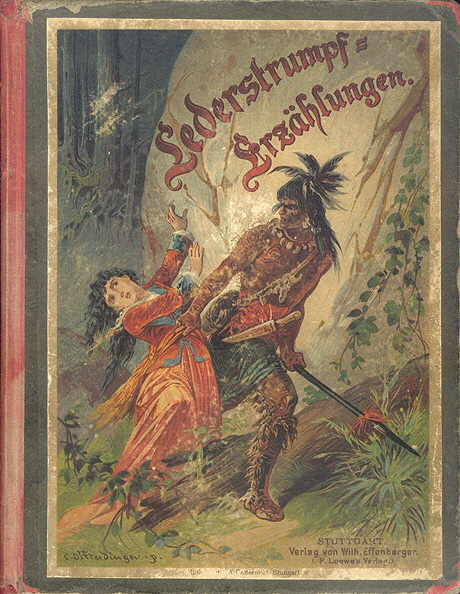Background
In 1850, James Fenimore Cooper wrote this preface to his “Leather-Stocking Tales,” a series of five novels which all center around the frontiersman character of Natty Bumppo and are set in eighteenth-century central-New York (former Iroquois territory). This preface was written after all five texts were published and works to explain the narrative chronology of the tales, as well as the character of Natty Bumppo and Cooper’s “beau ideal” depiction of American Indians.
The preface is a very quick read and is easily found online in its full form.
Summary
Cooper spends some time explaining the “desultory and inartificial manner” in which the five Leather-Stocking tales were written. He notes that the chronological order of the tales’ narratives does not match the order in which they were written. He moves on to explain his creation of the character Natty Bumppo. Cooper notes that Bumppo, being a white frontiersman, has the benefits of a childhood spent in civilization and an adulthood spend in the wilderness. Cooper believes that, through the balance of the two scenes within Bumppo’s life, it is possible that Bumppo was able to become a sort of ideal character, escaping the evils of both civilization and wilderness. Finally, Cooper contends with criticism he received regarding his depiction of American Indians within the Leather-Stocking tales. Apparently, many readers criticized his “beau ideal” representation of the American Indians, claiming that the reality differed greatly from Cooper’s version. At the end of this preface, Cooper responds by stating that his critics all seem to interact with American Indians only when purchasing their land, which, Cooper states, would naturally be a negative interaction.
Notes & Quotes
- Cooper’s description of Natty Bumppo’s character is especially pertinent to my interests. He almost touches on the concept of degeneration as a result of time spent in the wilderness amongst American Indians. Rather than framing his description within the gothic mode, however, he instead claims that Bumppo has spent the perfect amount of time in both civilization and wilderness, allowing him to avoid any (gothic) excess of either of the two environments.
There was no violent stretch of the imagination, perhaps, in supposing one of civilized associations in childhood, retaining many of his earliest lessons amid the scenes of the forest. Had these early impressions, however, not been sustained by continued, though casual connection with men of his own color, if not of his own caste, all our information goes to show he would soon have lost every trace of his origin. It is believed that sufficient attention was paid to the particular circumstances in which this individual was placed, to justify the picture of his qualities that has been drawn. The Delawares only attracted the attention of the missionaries, and were a tribe unusually influenced by their precepts and example. In many instances they became Christians, and cases occurred in which their subsequent lives gave proof of the efficacy of the great moral changes that had taken place within them.
- I also found Cooper’s choice to opt for the “missionary” view of the American Indian quite interesting. He claims that it is the poet’s duty to provide the “beau ideal” version of the world, especially when writing a romance. Despite all this, he contends that the American Indian is in a “degraded moral state.” This made me consider the villain of The Last of the Mohicans, who seems to inhabit the very worst characters ascribed to the American Indian by white Americans. Cooper seems again to contend with “excess” in his vision of the American Indian. Without the connection of the white Christian missionary, for Cooper, the American Indian would be too uncivilized, too wild, much like Magua. This in itself is very gothic as it deals in questions of excess.
It is the privilege of all writers of fiction, more particularly when their works aspire to the elevation of romances, to present the beau ideal of their characters to the reader. This it is which constitutes poetry, and to suppose that the redman is to be represented only in the squalid misery or in the degraded moral state that certainly more or less belongs to his condition, is we, apprehend, taking a very narrow view of an author’s privileges. Such criticism would have deprived the world of even Homer.
